The link we are talking about between dehydration and joint pain is like keeping the gas away from the car without loading and letting all the gas dry out in the gas can. The car will run for a while and even run well. But eventually, the engine will seize and cease.
As you read on more, you will find out how dehydration and joint pain related, and how does dehydration cause joint pain.
How can dehydration cause joint and muscle pain?
It is important to drink water and have minerals as sufficient to maintain healthy hydration so that you can avoid dehydration and joint problems.
Dehydration is inarguably one of the most common preventable health condition that affects millions in the united states. And dry skin, rapid breathing, feeling dizzy, having dark yellow pee, joint stiffness, fainting, and lack of energy are few of the chronic dehydration symptoms when dehydration recurs for a long period.
In case you drank very few amounts of water, will it affect your muscles or arthritis pain because you were not drinking water as sufficient? Can dehydration cause joint pain? Yes, it is! But how?
All joints (articular) have cartilage padding, which consists mainly of water. It’s more like a nutrient sponge filled with water that cushions, lubricate, and provides nutrition to the cartilage. When the body is dehydrated, cartilages are weak, and joint repair is slow, which leads to joint problems. Most commonly knee pain.
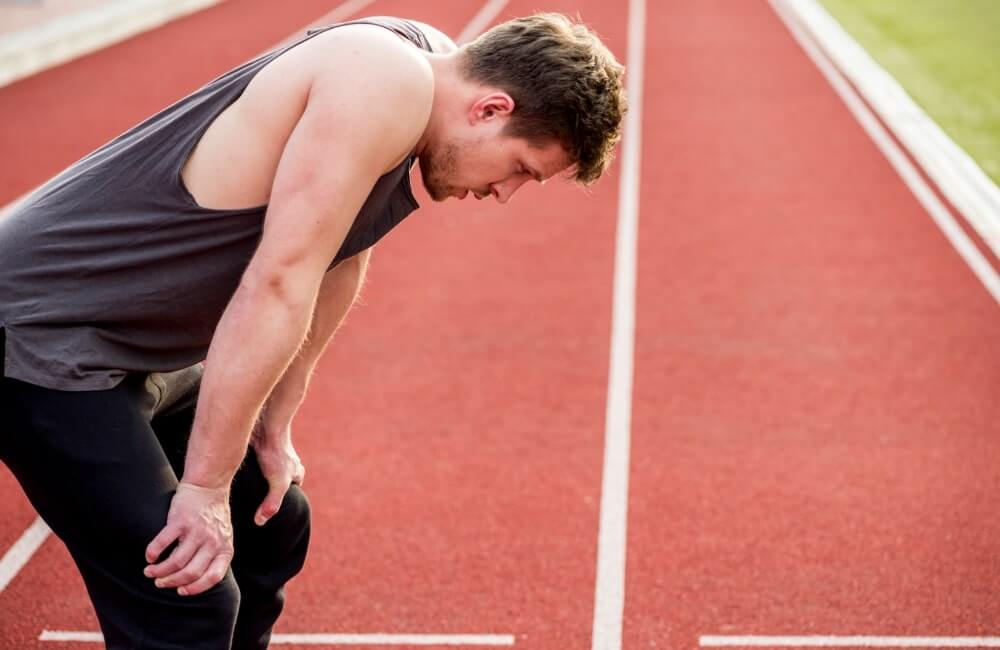
70-80% of our joint cartilages are made up of water. So, that means no wonder why a lack of hydration leads to joint pain.
Water acts as a lubricating agent for our joints to hydrate and to prevent friction injuries, joint pain, including back pain, the way oil does for vehicles. When your body becomes dehydrated, the body will start to absorb the water that has inside. The joints and tissues will be the first ones to get affected.
What do researches and books say about dehydration and joint pain?
Dr. F. Batmanghelidj, the author of a variety of books and research papers on water, metabolism, and pain, explains that rheumatoid arthritis is a direct signal of water deficiency. He also shows why and how often can dehydration causes back pain, chronic joint pain, and other diseases in his book.
Dr. Batmanghelidj recommends not to treat thirst with medications because pure water will help to balance cell-volume naturally, and it will also result from having more efficient cell activities in the body.
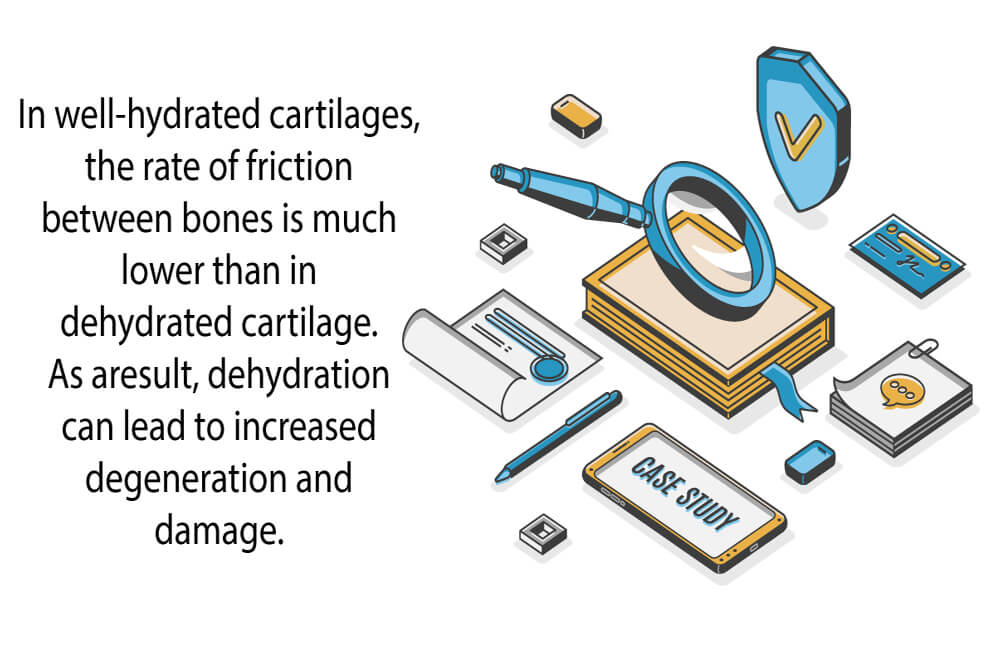
But, will it be safe to drink tap water in America to get joint hydration?
Tap water contains inorganic minerals and around seven hundred other chemicals (129 from them cited by the Environmental Protection Agency as causing serious health issues). Dr. Norman W. Walker explains in his book “Water Can Undermine Your Health” that the body can’t utilize inorganic calcium, magnesium, and other inorganic minerals if you don’t drink distilled water, which can also cause stiffness in joints.
Many health professionals recommend drinking one-half ounce distilled water a day, which fortified with liquid minerals.
Health pioneer Paul Bragg explains that drinking distilled water can flush out deposited mineral and cholesterol from our arteries. “Pure distilled water is truly God’s greatest gift to us, a source of life and health,” he says.
So, Just drinking water is not enough if it’s not in good quality.
What is dehydrating me that causes joint pain?
You may be filling a bunch of water bottles every morning and won’t go to bed until they are empty by night.
You may be not having dry skin or a dry mouth. And you may be even don’t feel thirsty or tired to know that your joints are lacking of water that you might not be aware of it.
So, what are the most common things that are dehydrating you?
1. Medicines
Prescribed medicines can cause millions of Americans to get dehydrated daily, that can turn in to electrolyte imbalance. Some medicines can cause dehydration, and joint pain will be the result in the long run. How can it affect?
Some medicines tend to increase water elimination by urine output, vomiting, and diarrhea. For some people, they can’t avoid these medications because it’s not an option for them. So, they need to take the necessary actions to stay hydrated, or they should contact their doctors to change their medicines or for guidance to be hydrated.
2. Age
When we get older, we need more water, but the sense of thirsty decreased. So when your body needs more water, you might not realize it. Also, the symptoms of dehydration often go unrecognized in older adults. Because these early signs of dehydration can be easily misunderstood to other medicines and conditions or the natural effects of aging.
We normally drink water quickly without thinking if we have had enough. When we drink water more than our thirst, the efficiency of protein is high. So, especially older people need to drink more water so they can stay hydrated and also to minimize the joint pain.
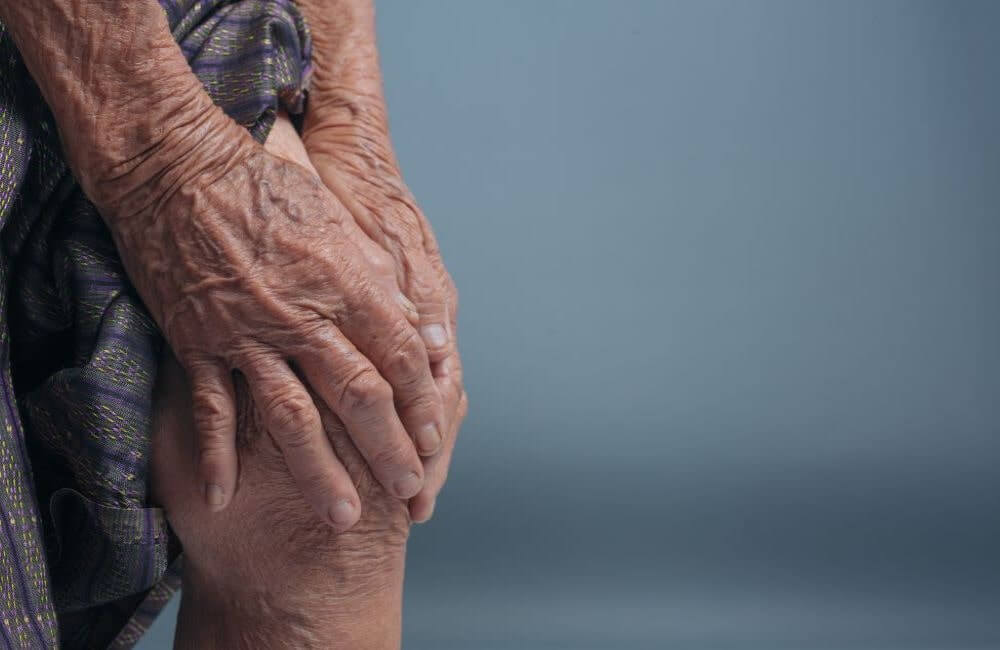
Even though you drink enough water, your body will be losing the necessary substances to produce the synovial fluid that keeps your joints nourished and lubricated as you age. When you age, your body cells will get drier. So the quantity of synovial fluid around the joints will decrease.
That is how dehydration and joint pain starts when you get older.
3. Alcohol
Alcohol may seem hydrating, but it is dehydrating you because it is a diuretic. Which is helps you to remove fluids from your blood through your renal system.
Do you drink bottles of water in the middle of the night because of this hangover? Do you know how alcohol affects your body and the reasons you may become dehydrated quickly?
Drinking too much alcohol can lead your muscles and joints to become stiff or cramped because you are losing water from joints. This condition is called “Alcoholic Myopathy.”
How much water do you need to prevent joint pain?
Hydrated cartilage is soft and smooth. When you lack water, it can cause friction that leads to joint pain, as we talked above.
The amount of water you should drink to prevent joint pain depends on the age, weight, activity level, and the environment you live in. Drinking daily enough water may sound like a challenge indeed. Also, remember that some of the liquids we drink daily can have the opposite effect of hydration.
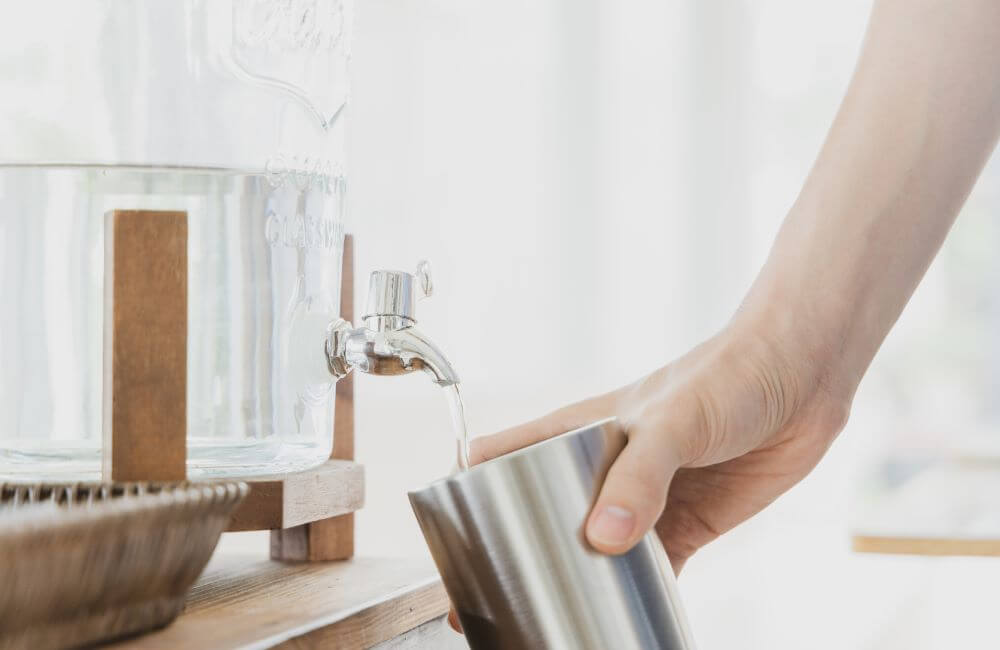
Make sure to drink distilled water daily. If you don’t want to get a bottle of water, then buy a filter for your kitchen. If you doubt the quality of water, contact your local public health service for an inspection.
Try to drink water when you are not just feeling thirsty. If you are not used to drinking water daily, it will take a bit to get used to it. Find a few other ways to drink more water during the day. Even before you know it, you will be in a habit, and you will surely notice how much better you feel daily.
Are you interested in reading this article in the future? Download as a PDF here ![]()
Dehydration and joint pain – Conclusion
Stay hydrated! It’s simple as that. Now we can conclude by saying that there is a direct connection between dehydration and joint aches, and water is the greatest gift from nature.
Dehydration is a very common problem that may turn into a serious issue if you may not take any necessary action as we talked above. Always try to stay hydrated as much as you can and download an app that reminds you to drink water if you want.
So, stay hydrated to avoid joint pains, and your joints will thank you later.

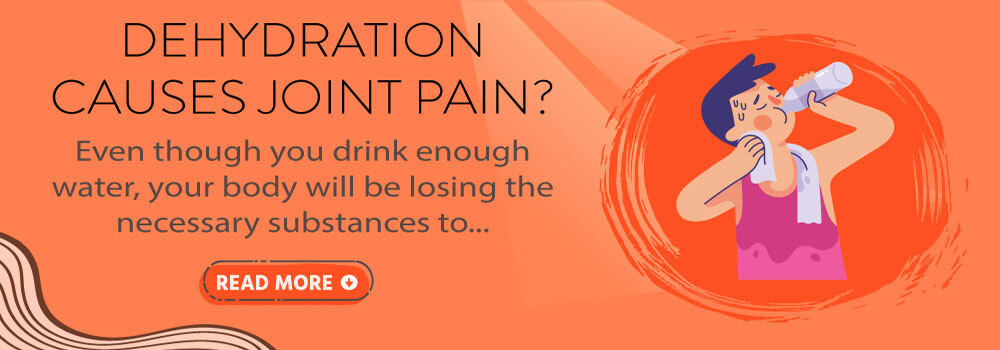
I have suffered from joint problems for a long time especially in the knees, and I have never thought that it is possible because of the lack of drinking water, I always thought that it was only due to inappropriate sports movements, or exercises without warming up